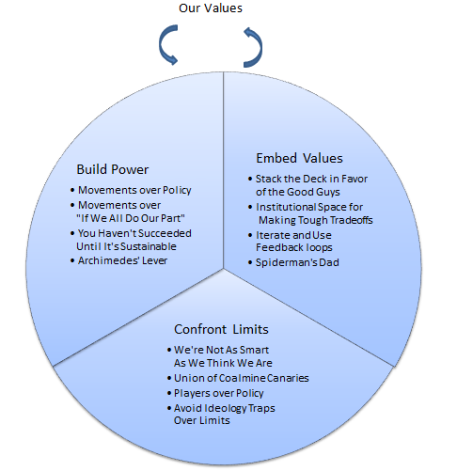Once upon a time, coal miners worked in a dirty, incredibly dangerous environment where the people who ran the coal mining companies weren’t too worried about their working conditions (come to think of it, that’s not too different from how it is now). One of the dangers they faced was that mines could contain pockets of gas that was odorless but lethal. If they couldn’t see or smell the gas, how could they protect themselves against it?
Somewhere along the way, someone made an important discovery: canaries were even more strongly affected by the odorless gas than coal miners were. So, coal miners started carrying canaries in cages into the mines. When the canaries started dying, it was time for coal miners to run like hell.
It was a good solution for coal miners. For canaries? Not so much.
One thing you can be sure of: if those canaries had had a union, this story would’ve played out differently.
Maybe the Union of Coal Mine Canaries would’ve suggested a timeout until a better solution could be found for everybody. Or maybe they would’ve suggested putting selected senior management in cages in the mines and see if that helped management come up with a win-win solution. No matter what, using canaries as an early warning system would’ve been a nonstarter.
Sometimes when we make economic decisions, the consequences are completely unforeseeable. But a lot of the time, those consequences hit some folks – usually folks lower down on the economic ladder – a lot sooner than others. So those folks have a much bigger interest in making sure we figure out what’s going on a lot sooner.
And sometimes, consequences which might seem “unforeseeable” to the people who are making the decision are eminently foreseeable to the folks who are going to get hit by them.
A good example: the devastating impact of what we called “globalization” on US manufacturing jobs. When GM, Ford, and countless other manufacturers started getting stiff competition from Japan, then South Korea, then elsewhere, their answer was to lay off hundreds of thousand of workers and shift manufacturing work overseas. Most US economists said, that’s okay, free trade” will solve the problem. Yes, in the short run it’ll cost us a bunch of good paying jobs. But all that free trade goodness will create even more good paying jobs, so don’t sweat it.
We can all see how that turned out.
In Germany, “don’t worry about free trade” didn’t win the day. German workers had a lot more power than US manufacturing workers did. Not only were German unions stronger, but through industrial work councils etc. they had a lot more say in the decisions that affected their livelihood. So they made damn sure the government and industrialists worked with them to do everything they could to keep good paying blue-collar jobs in Germany. They still took some hits, but it wasn’t anywhere as bad as what happened here.
Why did Germany and the US deal with the potential consequences of globalization so differently? It wasn’t because German economists were smarter than US economists. It wasn’t because they better understood the potential consequences. It was because German manufacturing workers had the power – both political and economic – to ensure that the wonks and the people who called the shots weren’t going to let workers get run over.
You could argue that the consequences of globalization were not unforeseen, they were deliberate — as we say in the tech world, it wasn’t a bug, it was a feature.” The beauty of the Union of Coal Mine Canaries approach is that it doesn’t matter. If you ensure that the people who are most likely to get hit by the consequences of economic decisions have the power to have a real say, it doesn’t matter whether the consequences are unintended/unforeseen, deliberate, or just a result of sloppy thinking. Either way, people have the power to protect themselves.
Up next: hedge fund managers, NIMBYs, and the Union of Coal Mine Canaries

